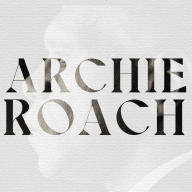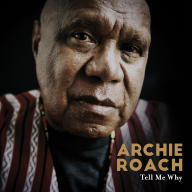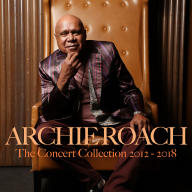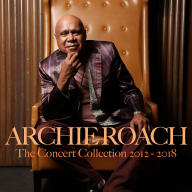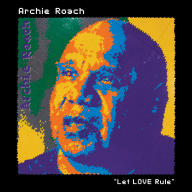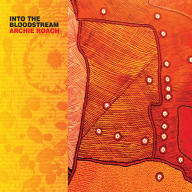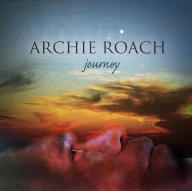Born in Framlingham Aboriginal Mission, near Warrnambool in southwestern Victoria, Roach was taken from his family at the age of three, along with two sisters, and sent to a Salvation Army orphanage. Although he had difficulties with his first two sets of foster parents, he found a home with a white family, Alec and Dulcie Cox, who had emigrated from Scotland to Melbourne. Through the influence of his step sister, Mary, and hearing a woman sing a Hank Williams song during a church service, Roach was inspired to pick up the guitar and begin writing songs. After receiving a letter from an older sister, Roach became enraged at the circumstances of his early life. Leaving the Cox's home with his guitar and no money, he spent the next 14 years searching for his birth parents and for clues about his past. During this difficult period living on the streets of Sydney, Roach met Ruby Hunter, another aboriginal guitar player who had been stolen from her parents. Hunter would become his soulmate and the two eventually raised a family.
In the late '80s, Roach and Hunter had formed the aboriginal band the Altogethers and relocated from Sydney to Melbourne. Roach was discovered by Paul Kelly Band guitarist Steve Connolly, who heard him performing "Took the Children Away" on a local current affairs television show. Roach was asked to open several shows for Kelly in 1990 as he was recording his debut album. Following Charcoal Lane's success, Roach spent the next few years recording and touring with high-profile acts like Joan Armatrading, Bob Dylan, Billy Bragg, and Patti Smith. Albums like 1993's Jamu Dreaming and 1997's Looking for Butter Boy continued to raise his profile. Roach was introduced to a global audience by Time Magazine, which sent a writer to Australia to cover the 2000 Sydney Olympics and ended up featuring the singer/songwriter in a cover story about the Stolen Generation. In 2002, he delivered both a new album, Sensual Being, as well as the soundtrack to the film Tracker. In 2005, he and Hunter collaborated with the Australian Art Orchestra on the album Ruby, which offered new material and artful reworkings of earlier songs. The latter part of the decade saw the release of both a new album, 2007's Journey, and a collection of early, unreleased recordings called 1988.
The next decade would begin with tragedy when, in February 2010, Ruby Hunter died of a heart attack at the age of 54. Later that year, a grief-stricken Roach would suffer a stroke while on tour and, in the following months, was diagnosed with cancer, which resulted in the removal of half his lung. He miraculously rebounded to record 2012's powerful Into the Bloodstream. Four years later, in 2016, he delivered his tenth studio album, Let Love Rule, which rose to an impressive number 24 on the ARIA charts. Digging into the archives, he resurrected a project begun in the mid-'90s that would have served as his third studio album but had ultimately been shelved. A collaboration with award-winning folk trio Tiddas, Dancing with My Spirit, finally received a proper release in 2018. Roach remained highly active throughout the rest of the decade, issuing a three-disc live set, The Concert Collection 2012-2018, and publishing a critically acclaimed memoir, Tell Me Why. The accompanying 2019 album of the same name reached number seven on the ARIA charts, giving Roach the highest placement of his career yet. The released netted a pair of ARIA awards and he was subsequently inducted into the ARIA Hall of Fame. A year later, in celebration of its 30th anniversary, Roach reimagined his debut album and released a newly re-recorded 2020 version, The Songs of Charcoal Lane, earning him yet another ARIA for Best Blues and Roots Album. In March 2022, a career-spanning box set titled My Songs: 1989-2021 collated the many highlights of his impressive career. Barely five months later, on July 30, Archie Roach died at Victoria's Warrnambool Base Hospital following a long illness. He was 66 years old. ~ Timothy Monger & Craig Harris, Rovi


